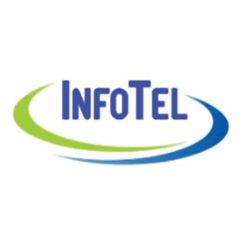
Mukesh Ambani-owned Reliance Industries Limited (RIL) has chalked out an aggressive rollout plan for Infotel Broadband, its broadband wireless access (BWA) venture. Having selected long term evolution (LTE) as its technology platform, Infotel is planning to launch high speed data services in 700 cities under the first phase of rollout by end-2011.
The company has invited international telecom vendors to demonstrate their LTE capabilities before awarding contracts, which are estimated to be valued at over $2 billion. Companies like Huawei, Samsung, Ericsson, Alcatel-Lucent and Nokia Siemens Networks will participate in the tendering process. Infotel is also in the process of tying up with handset companies like Samsung for bulk procurement of tablet PC devices like the Galaxy Tab, which support LTE technology.
Infotel is also in the process of finalising arrangements with operators, infrastructure providers, application developers, etc. for service rollout.
Infrastructure base
The company is planning to lease about 26,000 towers initially. For the first phase of rollout, it would require 60,000 towers. For pan-Indian operations, it would eventually need more than 100,000 towers.
However, by offering infrastructure service providers only half of the prevailing tower rentals, Infotel has shown its intention of being extra cautious on the cost front. The company has reportedly offered a rent of Rs 16,000-Rs 18,000 per tower per month. For ground-based towers, the prevailing monthly rentals are Rs 27,000-Rs 33,000 per tower while those for rooftop towers are Rs 19,000-Rs 21,000 per tower. These rentals are typically the highest for an anchor tenant and decline as more tenants come on board. In addition, there are power and fuel charges, which are levied on actuals. On an average, these costs add another Rs 20,000 per tower per month and can even match the monthly rental in power-deficit states.
In the backdrop of increasing competition leading to declining margins in the Indian telecom space, Infotel Broadband is taking cautious steps As an industry analyst puts it, “The company is playing a volume-based game.” India’s total telecom tower base is around 350,000 and Infotel is looking to lease at least 17 per cent of this, which may go up to 28 per cent in the future. It is expected to split tenancy among two-three infrastructure providers. Given that most vendors insist on 10-15 year lock-in clauses, these will be long term tenancies.
“Infotel is offering bulk volumes while the overall demand is sluggish. This is why it is seeking the discount. Many will accept the condition for a bulk deal,” says a tower company official. However, some also believe that this deep discounting will pinch many tower operators, who will not participate in the tendering process initiated by Infotel.
Financing
In October 2010, Infotel Broadband appointed 13 banks to arrange funds for its rollout plans. The company has already tied up $1.5 billion from eight banks. The syndication of this loan amount was closed in January 2011.
Setting the ball rolling
The National Broadband Plan was announced in 2010 with the intention of connecting close to 160 million households to a broadband network by 2014 as compared to the current 10.3 million. Infotel seems to have set the ball rolling by commencing the development of infrastructure; the other five BWA licensees are likely to follow suit.
However, the company should ensure that the timeline for its service launch, slated for end-2011, is met. By then, all the 3G licensees would have launched their services including high speed applications. “To ensure that it does not lose out on revenues from 3G services that are already being launched, RIL will look to launch services at the earliest, especially since it has the ability to do so,” says Romal Shetty, national telecom head, KPMG.
Moreover, this BWA venture will mark RIL’s re-entry into the telecom sector, that too on a stronger footing. RIL has been seeking better investment opportunities following remarkable growth in the core industry sector. Through Infotel, it expects to revolutionise the broadband market like it had done after entering the mobile market in 2003.